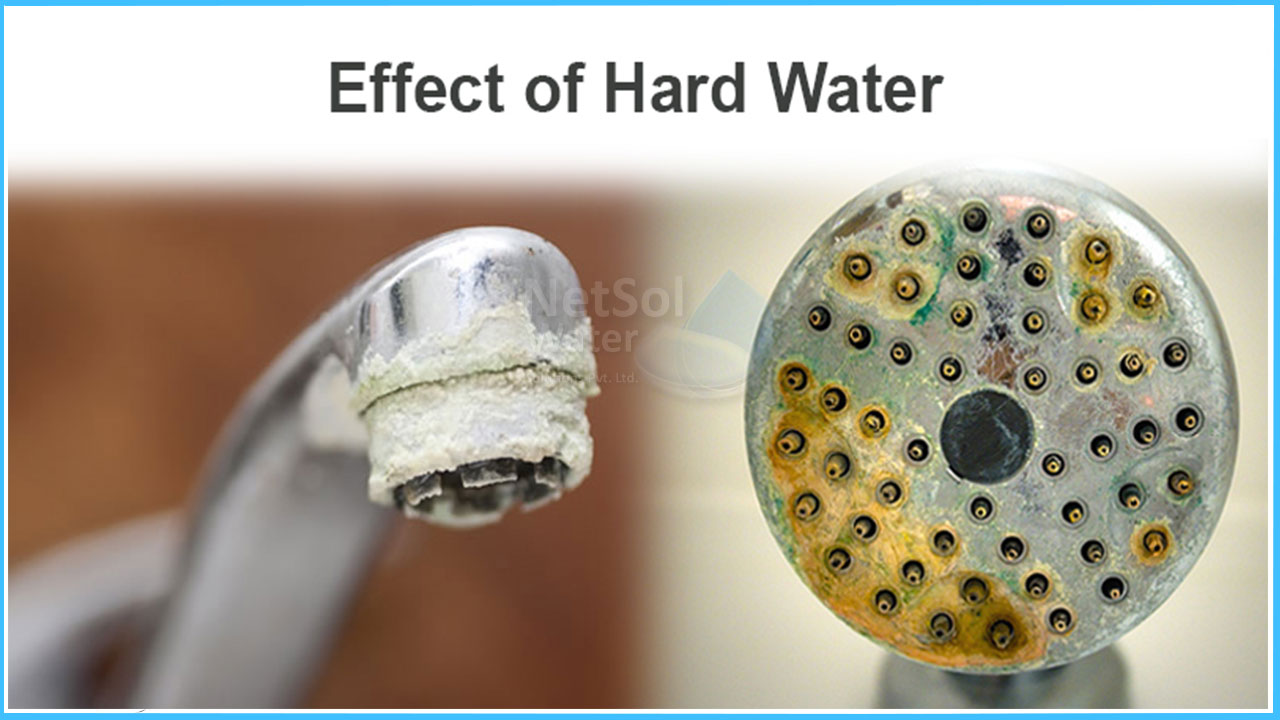WATER HARDNESS
The simple definition of water hardness is the amount of dissolved calcium and magnesium in the water. Hard water is high in dissolved minerals, largely calcium and magnesium.
You may have felt the effects of hard water, literally, the last time you washed your hands. Depending on the hardness of your water, after using soap to wash, you may have felt like there was a film of residue left on your hands. In hard water, soap reacts with the calcium (which is relatively high in hard water) to form "soap scum". When using hard water, more soap or detergent is needed to get things clean, be it your hands, hair, or your laundry.
IMPACTS OF HARD WATER
There is no serious adverse health problems associated with drinking hard water.However, hard water can contribute to dry skin and hair. Washing your hair frequently with hard water can leave your scalp feeling itchy.
The minerals in hard water can also change the pH balance of your skin, weakening it as a barrier against harmful bacteria and infections. People with eczema may be especially vulnerable.
If you notice problems with dry skin and hair, you may want to look into a water-softening system for your home. If that isn’t possible, talk with a dermatologist about moisturizers and hair products you can use to combat the effects of hard water.
BENEFITS OF HARD WATER
Because hard water contains high concentrations of magnesium and calcium, drinking hard water may help you get your recommended daily intake of these essential minerals.
There is some speculation that drinking hard water may have cardiovascular benefits, but there’s no definitive conclusion to back up that claim.
WATER SOFTENING
A home water-softening system works by running hard water through a resin — a sticky, insoluble substance from certain trees and plants — that’s coated with positively charged sodium ions.
These are molecules with a net electric charge. Concentrations of sodium essentially replace the magnesium and calcium in the water.
Water softening units require on-going maintenance, and sodium pellets need to be added to keep the resin electrically charged.
Some systems can use potassium pellets instead of sodium. There are also systems that use magnets, citric acid, or other means of reducing the calcium and magnesium concentrations in the water.
CONCLUSION
Most people can safely drink hard or soft water with no side effects. Higher sodium levels in soft water may be a concern for some people, but that can be managed with a potassium-based softening system.
If the sodium in soft water is a concern, you can try drinking bottled water and using your home’s soft water for laundry, dishwashing, and bathing.
If you’re interested in softening your water, shop around and talk with a plumber about how the system may affect your home’s plumbing. It’s also helpful to understand the maintenance requirements of a water-softening system before you buy one.
This needs to be clear that the article is for drinking purpose not for the every single use of water i.e industrial, etc.




